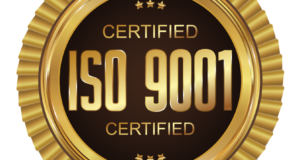
“It’s just too expensive to be sick. I’ll see one of those natural doctors and get cured.” Alan (not his name) spoke these words to the pharmacist when he went to pick up his usual prescription of Advair® for treating his asthma. He never knew the inhaler cost over $262 per month; his co-pay had only been $20.
For the past 25 years, Alan had medical insurance to cover the medical costs of treating his asthma. Insurance premiums were taken out of his work checks; his co-payments to get prescriptions or see his medical doctor were always affordable. His deductible was $500. He never knew the high cost of having asthma, until he lost his job, and subsequently, lost his medical insurance coverage.
So when Alan called for the refill on his monthly asthma inhaler, he believed the cost would be manageable. Never in his wildest thoughts did he imagine the expense of his medication would be so much. “I can’t believe people pay so much money just to stay sick,” Alan stated. “I was such a fool.” He left the inhaler behind and scheduled an appointment with “one of those natural doctors.”
Disease Management
From the medical standpoint, managing a disease is to keep the disease from impacting a person’s life, and to keep a chronic disease from having flares, or exacerbations-those times when the disease requires hospitalization and/or extra medications to get it back under control. The majority of chronic diseases are managed through drug therapy, such as the inhaler in Alan’s case. Alan’s inhaler contained two medications to keep the lungs from being reactive, thus preventing asthma attacks. Most medications work to keep the body from reacting.
Still, the average person will not say their condition is “under control” by any means. Even with using his inhaler daily, Alan stated that he was still short of breath often and had to limit his activities on “rough days”.
Others who take their medications as prescribed for disease management state the side effects of those medications are what impacts their life. Their “disease” is under control, but the side effects of the medications are making their lives miserable. Many people choose their disease symptoms over the side effects of the drugs prescribed to manage it. Plus, some of the side effects require further medication for management of those side effects, and so on.
But many people feel their only hope is the medications they choose. They feel the alternative is either suffering or death. So they pay high prices for medications and medical insurance, and suffer with the side effects of those medical drugs, hoping that the right drug will be found that will help them manage their condition better while letting them live a better life without the side effects.
What they really want is cure, but believe that it will never happen.
Cure
Is cure possible? According to Webster’s Dictionary, Cure is “freedom from disease” and “a remedy”. Anyone with a chronic health condition, at some point, gives up on the dream of curing their illness. The most they can hope for is that the medical drug regimen they are taking will allow them to have some quality of life and allow them to have time with their children or grandchildren. Cure is not something they hope for.
In the United States, according to the FDA, only medical drugs are legally allowed to prevent or cure any health condition. Therefore, exercise, diet changes, prayer, stress management, stopping smoking, limiting alcohol consumption, natural supplements, homeopathy, chiropractic care, etc. cannot cure anything-LEGALLY.
And, no one outside of the medical profession can work towards cure or state that anything other than medical drugs can cure…in the United States.
So where does that leave people like Alan who cannot afford medical drugs or medical care, or choose not to use these services? Is it possible for them to attain health and cure-legally?
Diseases
As a culture, we have been taught that disease “happens to” you-that you have no control over it. It has been taught that the only way to prevent disease is to get vaccinations and have an annual physical-it is up to a medical doctor to tell us we’re healthy. They decide what diseases you have and what you need to do to manage them. We are taught that disease happens like a roll of a die-what comes up when you roll the die determines the disease you will get.
We are also taught that most of our diseases are genetic, so you’re going to get a disease no matter what you do because it’s in your genes. We are not taught that we have any “say” over if we are going to get ill or not. Women with a family history of breast cancer are having elective breast-removal operations. People are asking for diabetic-prevention medicines if diabetes runs in their family; they take these drugs for sometimes 20-30 years in the hope that they will not develop diabetes.
Everyone has the genetic predisposition for every disease. But it’s our lifestyles, what we eat, what we think, our emotions and our life’s choices that determine if any of those diseases will present themselves. If a disease does present itself, how we work with those initial symptoms will determine the extent to which a disease will impact our lives. In other words, just because Alan started wheezing when he was 13 didn’t mean he had to develop asthma-whether it was in his genes or not.
Health in the United States
Health is a very individualized definition. According to Alan, he believed that health was the absence of symptoms of asthma. As long as he could breathe well, he felt he was healthy. Most people (and their doctors) also believe that health is the absence of symptoms, even if they have a disease, such as asthma.
As a culture, we are conditioned to believe that symptoms equals disease and that ALL symptoms must be medicated. Last year I saw an ad in the weekend circular that had the headline “Digestive Health”. Under the heading were pictures of medical drugs: Pepcid AC®, Pepto-Bismol®, some other antacids, a diarrhea medication (Imodium®) and a constipation medication. According to this ad, the only way to obtain digestive health was to take medications for whatever symptom you had; there was something for all digestive symptoms.
Advertisements on TV, radio, and print show people happy and living life to the fullest by taking a medication. The actors and actresses are showing that life is great, they can walk and run outdoors, play with children, and go on vacation without any troubles. They smile, are dressed well, and look happy. Therefore, people believe they can attain such a life by taking the drug that is being discussed. Rarely do REAL people experience such wonderful effects. The people in the ads don’t actually take the medications, and rarely, if ever, do they have the condition for which the drug is prescribed. They are paid to be in the ad and to show you how great your life will be if you took the drug.
We also, as a culture, are told that as you age, you will get diseases. We are conditioned to believe that age equals disease, and that you cannot be an elderly person without taking drugs. I have had several clients who have stated that they went to their medical doctors for their annual physical who insisted that they HAD to have something wrong with them because they were over 60! In these cases, each person had the strength to challenge the statement and insisted upon medical proof that they had an illness or disease that required drugs. After a battery of tests, nothing could be found. Still the MD insisted on prescribing medications for high blood pressure and high cholesterol because they couldn’t possibly be healthy! (Note: each patient refused the prescriptions).
Health can be attained, even if a person currently has a chronic health condition or is prone to becoming ill. And, just because you are growing older doesn’t mean you HAVE to be ill.
Health in Other Countries
The United States and Canada are the only two countries that rely totally on medical drugs and treatments for the care of health conditions. In other countries, especially Great Britain, Asia and India, homeopathic remedies are the “medicines” of choice for all health conditions-both chronic diseases and new concerns. Other countries have medical doctors who have been trained in medical schools such as those in the United States; and, as in the United States, a doctor can receive additional training to become a Homeopathic Doctor.
Being the only homeopathic practitioner in my area, I have received calls from several college students who came to Green Bay to study; they were looking for a “medicine” that our pharmacy didn’t carry; they were given my name to call. The “medicines” they were looking for were homeopathics, which had been prescribed by their Medical Doctors in their home country. Some of the conditions were: leukemia, asthma, emotional concerns (depression, anxiety) and headaches, to name a few.
What is Homeopathy?
Many people who have heard of homeopathy believe it is similar to herbs and other natural supplements. It is not. Homeopathic remedies are actually medicines-they are natural, but they work don’t work like herbal supplements. Herbs have active components that work within the body to make physical changes. Homeopathic medicines work to restore the body’s inner wisdom back to balance, to allow the body to heal. When used the right way, the body can work at removing symptoms by healing the person. These types of medicines are energetic medicines, designed to restore the body’s energetic balance to its original, healthy state.
Homeopathic medicines come in several forms, but the most common two ways are liquid and tablet. Tablets dissolve under the tongue-they are not swallowed. Liquids are placed in the mouth for a short while, then swallowed.
Modern vs. Classical Homeopathy
There are two types of homeopathy that have arisen over the years-Modern and Classical. Although both work with the same homeopathic remedies, the philosophy behind each is different.
Modern Homeopathy: in the United States, when homeopathy is practiced, it is usually modern homeopathy because it is more widely accepted by people-it works based on managing diseases, which is what people are used to, so they accept it better. In place of medical drugs, a homeopathic remedy is used to manage the disease. There are no side effects with homeopathic remedies, so people like them better than taking medical drugs.
One draw-back of Modern Homeopathy is that the practitioner doesn’t work towards healing, so the remedy selected may only work for a short while, then another will have to be used and so on. This form of homeopathy can work like medical drugs in that it suppresses symptoms instead of healing them, so the disease can still be driven deeper within.
Classical Homeopathy: this form of homeopathy is the standard practice throughout the world-they do not practice “modern homeopathy,” as the philosophy of Classical Homeopathy is to work towards cure. When cure occurs, the person no longer needs to manage any diseases because there will be none. When cure occurs, there is no need to take any supplements of any kind. I commonly say to people: “When it’s time to heal, call a Classical Homeopath.”
Hope in Healing
It is possible to live your entire life without developing a disease. You can live to be 100 without taking medical drugs. You can be healthy after the age of 60. You don’t have to develop breast cancer or heart disease just because it’s in your genes. You don’t have to develop Alzheimer’s just because your mother had it. You can be healthy.
It’s your choices that determine if you will become ill or not; and, if you become ill, how ill you will become. When Classical Homeopathy is applied to the first symptoms of an illness, rarely does a chronic condition form.
We all have made decisions in the past that we regret today, or realize weren’t in our best interest. Replace the guilt with hope. The choices of the past were made based on the information you had at THAT time. You made the best choice you could with what you knew.
With homeopathy, I have seen many “miracles” occur. I have read many cases of people having diseases for many years that disappeared after seeing a Classical Homeopath. I chose to practice Classical Homeopathy because I learned that there was nothing like it for helping people with chronic conditions. There were plenty of herbs and other supplements that could help people manage chronic conditions, but management wasn’t enough for me.
The Founder of Homeopathy, German physician Samuel Hahnemann, stated: “The physician’s high and only mission is to restore the sick to health, to cure, as it is termed.” His second statement was: “The highest ideal of cure is rapid, gentle and permanent restoration of the health, the removal and annihilation of the disease in its whole extent, in the shortest, most reliable, and most harmless way, on easily comprehensible principles.” (“The Organon of Medicine” (1779) by Samuel Hahnemann).
I am a Naturopathic Doctor-as such, I felt my job, my duty, was to restore the sick to health-to cure. Classical Homeopathic principles with its remedies provided the tools I needed to do my duty.
Conclusion
Best wishes to all who are looking to heal. May you find the answers for which you are looking. Remember that the answers to prayers aren’t always what you are expecting, but are usually what’s for your highest good.

Source by Ronda Behnke
 Vitamin Agent The Health & Naturalistic Source
Vitamin Agent The Health & Naturalistic Source





